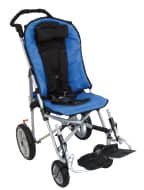Recently, the Institute Of Medicine, based in Wash, DC, reported that despite evidence supporting the potential value of cognitive rehabilitation therapy (CRT) for treating traumatic brain injury (TBI), the evidence is not enough to definitively determine the application of CRT and which patient population it would work best for.
Prior research suggests some forms of CRT are effective for patients with TBIs. However, the Institute of Medicine’s recent report suggests that much of the data in these studies was limited. In addition to the relatively small number of people enrolled in past studies, researchers say the variations among patient characteristics, severity of injuries, and CRT interventions made it difficult to know how effective a specific CRT intervention is in the long-term recovery of a specific individual.
The report calls for the implementation of a research agenda, using studies with larger samples and standardized data to improve future studies of CRT and evaluate its effectiveness in treating TBIs. “Survivors of traumatic brain injury . . .need an effective health care infrastructure and evidence-based treatment and rehabilitation policies to care for and cope with their impairments,” says Ira Shoulson, MD, chair of the report’s committee, professor of neurology, pharmacology, and human science, and director of the program for regulatory science and medicine, Georgetown University Medical Center, Wash, DC.
According to the report, 1.7 million people in the United States sustain a TBI, and the number of military service members diagnosed with a TBI has more than tripled from 2000 to 2010. Researchers emphasize that this trend spotlights a growing need to effectively treat lasting consequences of TBI and more research is needed to accomplish this.
For more information visit http://www.iom.edu
Source: Institute of Medicine




